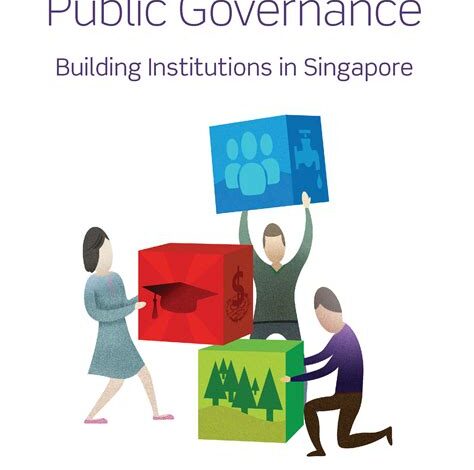Challenges in Public Sector Governance: Case Studies from Around the World

Learn about public sector governance, common challenges, political instability’s impact, best practices, and international case studies. Essential insights for government accountability.Public sector governance is a crucial aspect of any government’s functioning, as it directly impacts the lives of its citizens. From ensuring the effective delivery of public services to maintaining transparency and accountability, the challenges faced by governments in this area are numerous and complex. In this blog post, we will delve into the definition of public sector governance and explore the common challenges that governments around the world encounter in this realm. Additionally, we will examine the impact of political instability on governance and highlight best practices in public sector accountability. Through international case studies, we will also glean valuable lessons and insights that can be applied to improve governance practices. Join us as we unravel the complexities of public sector governance and learn from the experiences of governments across the globe.
Definition of Public Sector Governance
The definition of public sector governance refers to the set of principles, processes, and practices that guide the way a government operates and makes decisions. It encompasses the mechanisms through which authority and power are exercised in the management of a country’s economic and social resources. Public sector governance is aimed at ensuring that the government is accountable, transparent, responsive, and efficient in serving the needs of its citizens.
One key aspect of public sector governance is the establishment of institutions and mechanisms that promote the rule of law, uphold human rights, and combat corruption. It also involves the formulation and implementation of policies and strategies that promote economic growth, social inclusion, and environmental sustainability. Effective public sector governance is essential for the stability and development of a country, as it shapes the functioning of public institutions and the delivery of public services.
In summary, public sector governance is the framework within which public organizations and institutions operate, guided by principles of accountability, transparency, and responsiveness to the needs of the people. It plays a critical role in shaping the political, economic, and social landscape of a nation, and is fundamental for promoting the wellbeing of its citizens.
Common Challenges Faced by Governments
The role of government is a complex and multifaceted one. Governments are responsible for the welfare and safety of their citizens, as well as for promoting economic growth and development. However, in the pursuit of these objectives, governments often face a number of challenges that can hinder their ability to effectively govern and provide for their constituents.
Financial constraints are perhaps one of the most common challenges faced by governments around the world. Whether it is due to budgetary limitations, inefficient allocation of resources, or inadequate revenue generation, many governments struggle with financial stability. This can have a profound impact on the government’s ability to deliver essential services, invest in infrastructure, and stimulate economic growth.
Additionally, political instability is another challenge that governments frequently encounter. This can manifest in various forms, including frequent changes in leadership, power struggles among political factions, or widespread civil unrest. Political instability can disrupt the implementation of policies and initiatives, as well as erode public trust and confidence in the government’s ability to govern effectively.
Impact of Political Instability on Governance
Political instability can have a significant impact on the governance of a country. When a government is constantly changing or facing internal conflict, it becomes difficult to implement and enforce policies that benefit the public. This can lead to a lack of trust in the government and an increase in corruption, as officials may take advantage of the chaos to further their own agendas.
Moreover, political instability can also disrupt essential public services, such as healthcare and education, as resources may be diverted towards maintaining power instead of addressing the needs of the people. This can lead to a decline in the overall quality of life for citizens and create further dissatisfaction with the government.
International case studies have shown that political instability can have long-lasting effects on governance, causing economic downturns, social unrest, and even civil war. It is imperative for governments to address the root causes of instability and work towards creating a stable and transparent political environment in order to effectively govern and serve their citizens.
Best Practices in Public Sector Accountability
When it comes to ensuring accountability in the public sector, there are several best practices that can be learned from international case studies. One of the key best practices is the establishment of robust and transparent reporting mechanisms to track the use of public funds and resources.
Another best practice is the implementation of regular audits by independent bodies to assess the performance and compliance of public sector entities. This helps in identifying any inefficiencies or irregularities, thereby promoting greater accountability and transparency.
Furthermore, the adoption of clear and enforceable regulations to govern the conduct of public officials and employees is essential in maintaining accountability. These regulations should outline ethical standards, conflict of interest policies, and consequences for breaching accountability measures.
Lessons Learned from International Case Studies
When examining the lessons learned from international case studies in public sector governance, it is important to consider the diverse range of challenges faced by governments around the world. One of the key insights gained from these case studies is the importance of transparency and accountability in governance. International examples have shown that government bodies that prioritize transparency and accountability are better equipped to address the needs of their citizens and provide effective public services.
Furthermore, international case studies have highlighted the significance of stakeholder engagement in public sector governance. By involving different stakeholders in the decision-making process, governments can ensure that policies and programs are aligned with the needs and interests of the community. This inclusive approach to governance has been found to enhance trust in government institutions and foster collaboration among diverse groups.
Moreover, international case studies have shed light on the impact of political instability on public sector governance. Instances of political turmoil and instability have been found to hinder the effectiveness of government institutions and impede progress in addressing critical issues. By examining these cases, valuable insights have been gained on how to mitigate the impact of political instability and maintain stability in governance.





